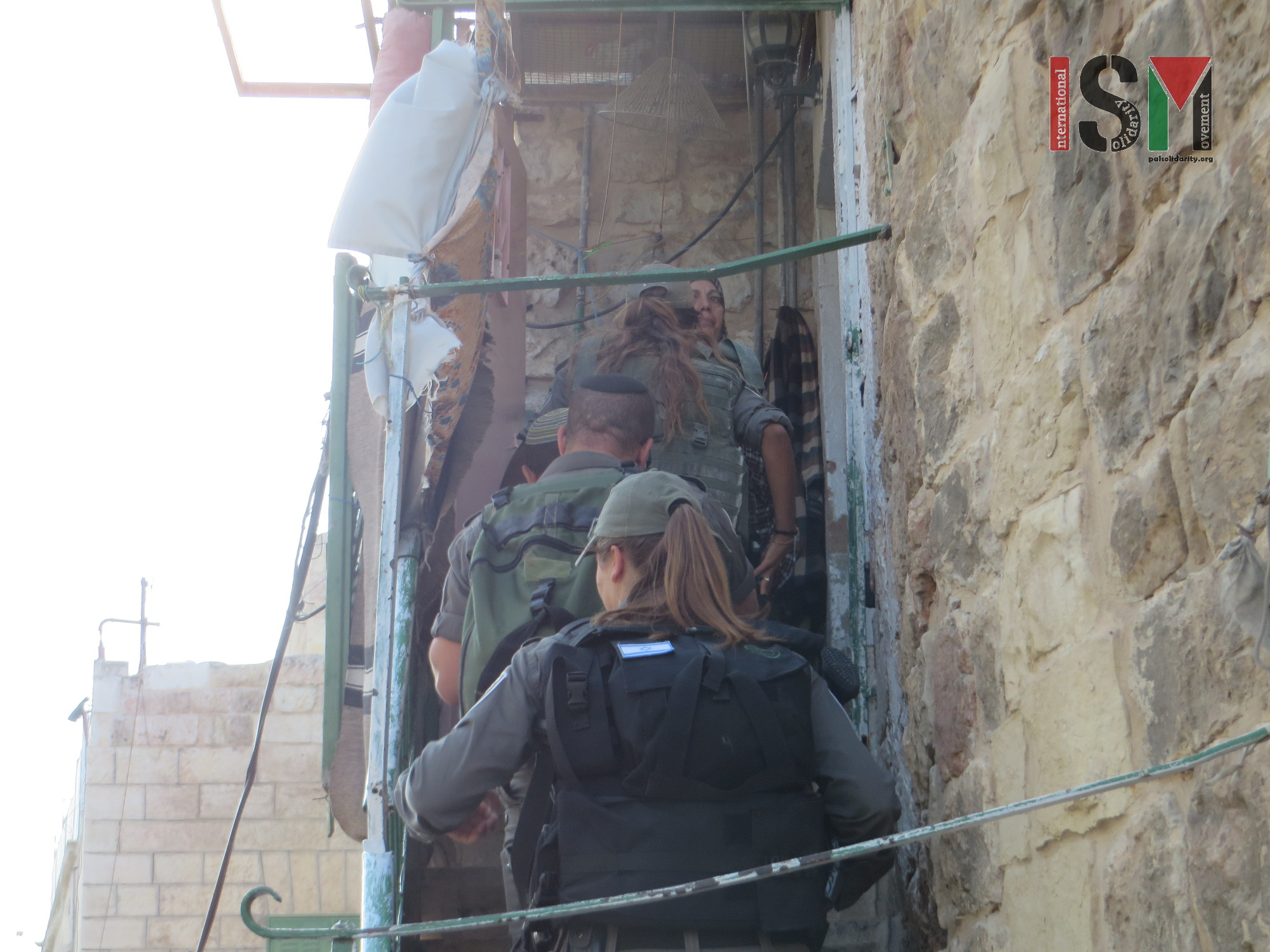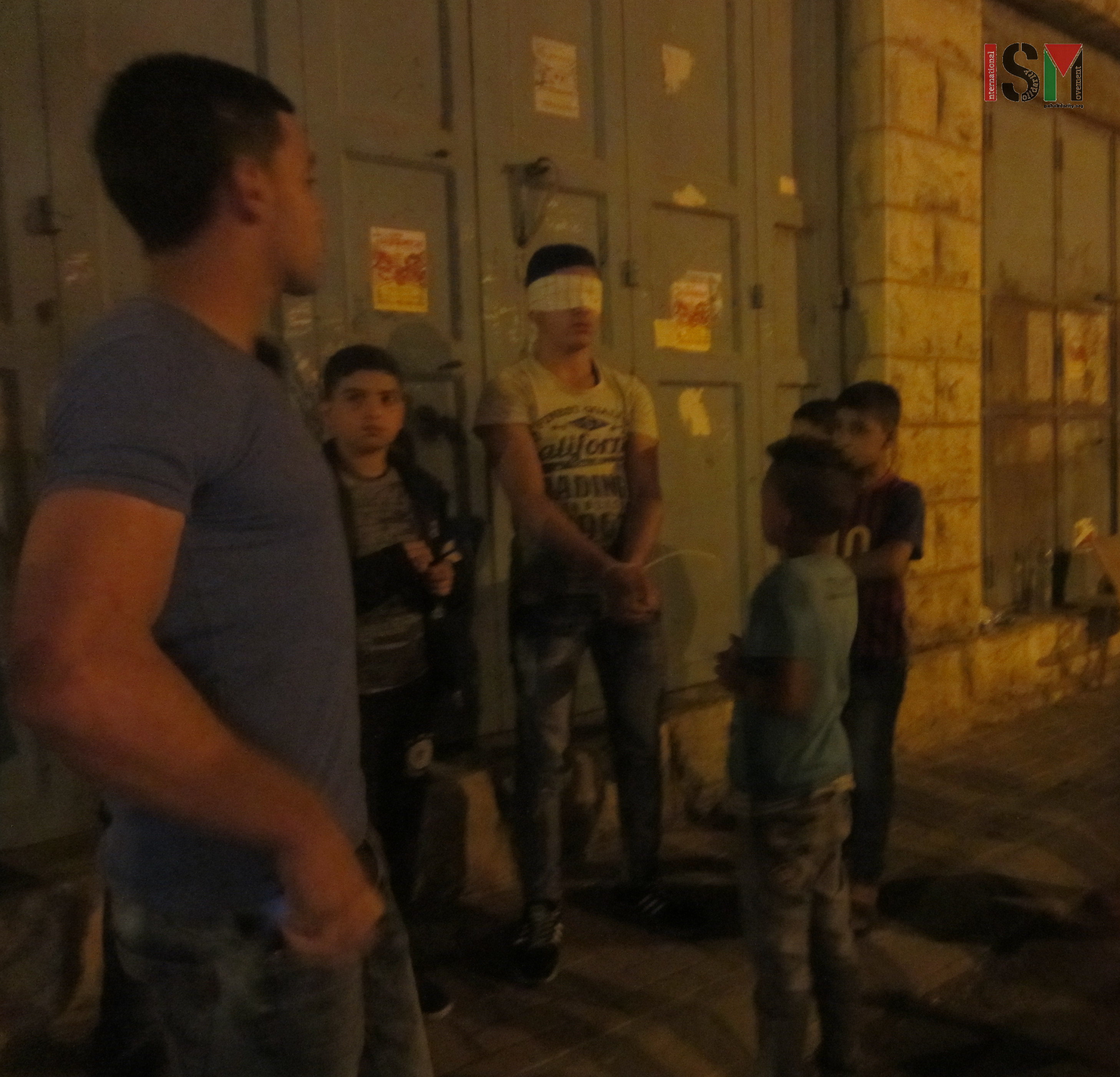Tag: Child Arrest
-
Israeli forces hunt for Palestinian children in Hebron market
1st August 2016 | International Solidarity Movement, al-Khalil team | Hebron, occupied Palestine On Sunday, 31st July 2016, Israeli forces in the Old City souq, the Palestinian market, of occupied al-Khalil (Hebron), were searching for a group of three Palestinian boys. Claiming they were throwing stones, Israeli forces were searching for them in order to…
-
10-year old girl arrested on settler children accusation
5th July 2016 | International Solidarity Movement, al-Khalil team | Hebron, occupied Palestine Israeli forces on Monday 4th July arrested a 10-year old Palestinian girl near the Ibrahimi mosque in occupied al-Khalil (Hebron), as a group of settler children arbitrarily accused her of throwing an enormous rock at them. A large group of settler children…
-
Three Palestinian boys violently arrested at night in Hebron
21st September 2015 | International Solidarity Movement, Al-Khalil Team | Hebron, Occupied Palestine Monday the 21st of August three boys were arrested in the Tel Rumeida area of Hebron, occupied Palestine. The boys were arrested at 8:45 pm and taken to the military base in Tel Rumeida. Two of the boys were arrested after allegedly…



